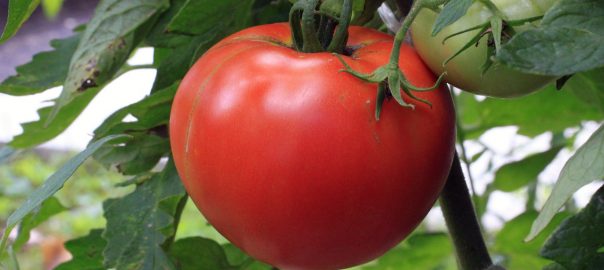I regularly teach a class on seasonal eating. What the benefits are and why we should look to consume more seasonal (and local) produce. Obviously part of the benefit is that seasonal foods are picked when they are fully ripe, especially if they are local, rather than being picked under-ripe and either stored or transported before being force ripened. This means that the nutritive value of the food is fully developed as well as it's flavor. Anyone who has ever eaten a truly fresh tomato knows what I am talking about.
Benefits of seasonal eating
- Better for the environment: Eating seasonal, locally produced fruits and vegetables also helps to reduce the environmental impact of your food. If you think about it, why eat tomatoes from 2,000 miles away when you can get better tasting ones closer to home without burning massive amounts of fossil fuels?
- More flavor: as mentioned above, food that is picked when it is ripe, rather than when it is convenient to harvest, is going to taste better. The texture (which contributes to the taste and the enjoyment) is also better because the produce is not artificially chilled and then force ripened, all of which changes the produce.
- Support your local farmer: most often when you're buying local, in-season produce you're buying it direct from the grower. This helps to cut out the middle man. Farmer's markets and CSA's are a great way to meet those who are actually growing your food and to be able to talk with them about how they are growing your food.
- Less pesticides and toxins: most local, small farmers don't use massive amounts of pesticides, insecticides, and other chemicals. This is where getting to know your local farmer is a big benefit. They'll tell you what they're not doing and explain why. Most often it's because they're growing your food in a way that nourishes the soil and that is more beneficial for the plants. Sure it may not look as consistent or “pretty” as what you see at the grocery store but it smells and tastes far better and has more nutrients.
Defining the seasons
At my last class I got a question that I've gotten a couple of times before and I wanted to address it because I think it's an issue that tends to get a little confusing for folks sometimes. It's about the seasonality of food. I live in Texas. We have a very different growing season here compared to most of the rest of the country. We essentially have the equivalent of two spring-like seasons, one very hot season sandwiched in between them, followed by a cold, often rainy season. Learning to grow food here has proven to be a bit of a challenge. It's nowhere near as easy or intuitive as what I'm used to having grown up in the Northeast. Luckily I have several local CSAs and Farmer's Markets that help supplement our supply of seasonal foods with their expert skills.
One question that comes up a lot is about what constitutes a season. The answer? Well, it depends on where you are living. I think the first, most important place to start is to understand the concept of seasonal eating and decide if this is something that you want to follow. We try to do so in our house for most things because we then get the ripest, best tasting produce by waiting for the season. It also means that we more fully appreciate our food by having to wait for it. I'm going to be honest and put in a disclaimer here to say that there are certain foods that we do not eat seasonally because we use them too much (such as onions, garlic, carrots, and celery) but in general we eat berries in the spring and summer, squashes in the winter and so on.
Resources
In addition to learning to appreciate the seasonality of your food, you need to learn what exactly your seasons are. If you're not sure of what's really in season in your area here are some websites that can help:
- USA – Seasonal Food Guide
- Canada – Foodland Ontario
- United Kingdom – Eat The Seasons
- Japan – Seasonal Ingredients
- Australia – Seasonal Food Guide
If you're looking to find a farmer's market and get fresh, seasonal, local product a great resource for the United States is Local Harvest.
Of course, once you've gotten all this fabulous seasonal produce you'll need to know what to do with it. Here are a few cookbooks to help with that:


Can you also recommend some local CSA’s? The only one I have found so far that I can get do after work is one in downtown every wednesday. (really hard to commit to)
Is there a weekend CSA or a delivery one in or north of Houston?